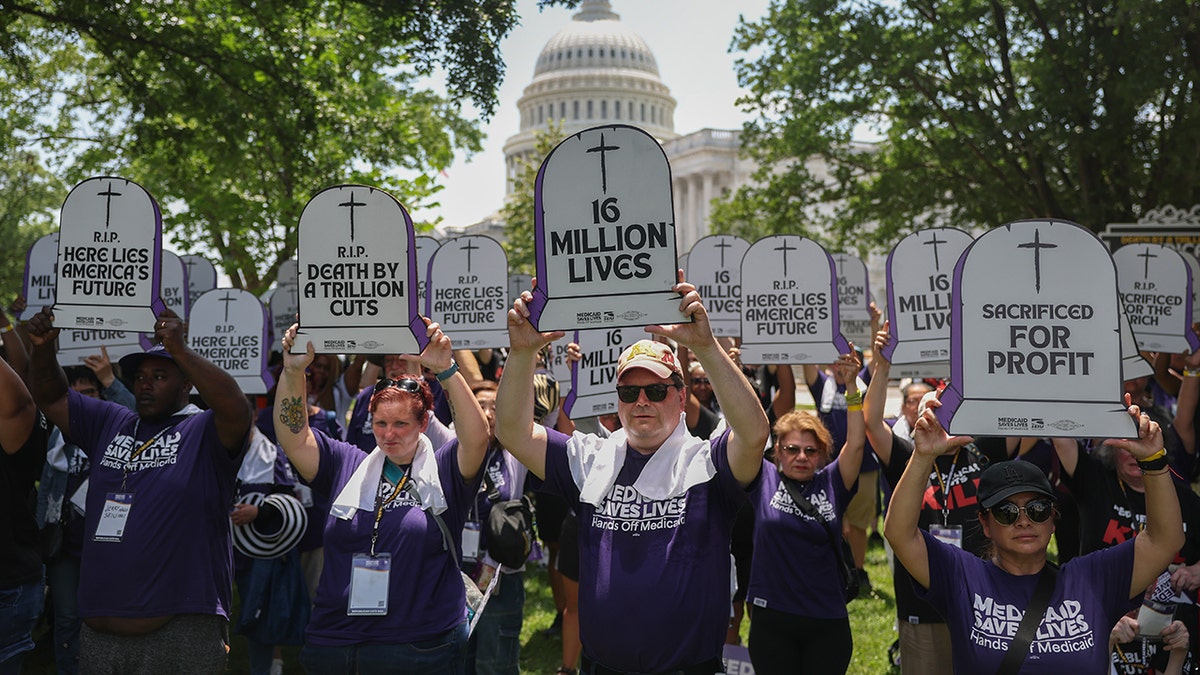Dr. Oz, newly sworn-in CMS chief, says Medicaid should empower work and fight fraud
Centers for Medicare and Medicaid Services administrator Dr. Mehmet Oz told Fox News he will push for work requirements and stronger anti-fraud enforcement to “empower” vulnerable Americans.
Dr. Oz, newly sworn-in CMS chief, says Medicaid should empower work and fight fraud
Centers for Medicare and Medicaid Services administrator Dr. Mehmet Oz told Fox News he will push for work requirements and stronger anti-fraud enforcement to “empower” vulnerable Americans.
Dr. Mehmet Oz, the recently sworn-in administrator of the Centers for Medicare and Medicaid Services, said he intends to reshape how Medicaid is administered by emphasizing work requirements and stepped-up anti-fraud enforcement, arguing the program should help — not entrap — beneficiaries. Speaking on Fox News’ My View with Lara Trump, Oz framed his agenda as an extension of a lifelong mission to bring change and help the most vulnerable Americans.
Oz said policy changes at CMS carry large fiscal consequences and are aimed at incentivizing “the right behavior.” “Our bottom line is the American people,” he told the program. “Every decision I have in this office changes how billions of dollars are spent in order to incentivize the right behavior and empower them to take action,” he said, adding that Medicaid should not promote dependency but support beneficiaries in taking control of their futures.

The policy emphasis comes amid a partisan debate over proposals contained in a high-profile legislative package favored by the White House, described by some supporters as a “megabill.” That package includes provisions to impose or expand work requirements for Medicaid recipients, a move that has drawn sharp criticism from Democrats and advocacy groups who argue such requirements can reduce coverage for low-income people and add administrative burdens. Supporters, including Oz, say work standards and tougher fraud controls will promote personal responsibility and preserve program solvency.
As administrator of CMS, Oz now oversees federal programs that account for a significant share of federal health spending, including Medicare and Medicaid. Changes to Medicaid policy can be implemented through federal rulemaking, state waivers and administrative priorities, and they typically prompt legal and legislative scrutiny. Oz’s comments signal an intent to use the agency’s authority to pursue policies aligned with the administration’s broader priorities on welfare, work and fraud prevention.
A former television host who transitioned to political life, Oz ran a high-profile U.S. Senate campaign in 2022 and has since moved into federal administration. On the Fox News program, he portrayed government service as the logical continuation of his public-facing career, saying his work in Washington, D.C., represented “the best job of his life.” He emphasized accountability and fiscal stewardship as guiding principles for his tenure at CMS.
Critics who oppose Medicaid work requirements have pointed to past studies and federal court rulings showing that such rules can cause coverage losses when eligible beneficiaries fail to complete paperwork, meet hours thresholds or lack access to jobs. Proponents counter that properly designed requirements can be paired with job training and support services to improve employment outcomes. Oz’s articulation of anti-fraud enforcement as a priority aligns with long-standing calls across multiple administrations to strengthen oversight of improper payments and program abuse.

The debate over Medicaid policy comes as states continue to vary widely in their Medicaid coverage rules, eligibility thresholds and willingness to seek federal waivers to experiment with work or other conditions. CMS has authority to approve state waiver applications that would allow states to implement alternative approaches, including work requirements, subject to federal standards and legal review. Any substantive shifts in CMS policy on work requirements or enforcement could reshape the mix of federal oversight and state flexibility.
Analysts and advocacy organizations say implementation details will be crucial. Whether work requirements would include exemptions, supports such as job-search assistance, or streamlined administrative processes will determine the practical impact on beneficiaries. Observers also note that steps described as anti-fraud enforcement can encompass a range of actions, from improved data matching and eligibility checks to more aggressive audits, each with different implications for coverage and administrative costs.
Oz’s tenure at CMS will likely be closely watched by lawmakers, state officials and health policy stakeholders. On Capitol Hill, proposals to alter Medicaid’s design have produced partisan standoffs in previous Congresses, with disagreements over the balance between fiscal restraint, program integrity and access to care. The so-called megabill’s inclusion of Medicaid work requirements has already been cited by both supporters and opponents as a defining element of the current legislative debate.
In his public remarks, Oz reiterated a theme common to administration supporters: that tightening eligibility and enforcement mechanisms can protect program resources while encouraging beneficiaries to pursue employment and greater self-sufficiency. He framed those aims as rooted in concern for vulnerable Americans, saying the agency’s decisions should be evaluated by whether they help people “take control of their futures.”
Stakeholders across the health care sector say the specifics of any proposed rule changes or waiver approvals will determine legal challenges, state responses and the on-the-ground effects for patients and providers. CMS has in the past changed course on major policies in response to court rulings, shifts in administration priorities or legislative action; similar dynamics could apply to any initiatives promoted by Oz and the agency in the months ahead.
Oz’s public statements on the Fox program add to a broader national conversation about the role of federal programs in addressing poverty, employment and health. As CMS moves to set priorities under his leadership, the agency’s regulatory choices and interactions with Congress and the states will shape how Medicaid’s goals of coverage, cost containment and program integrity are balanced going forward.